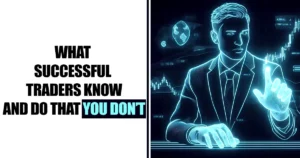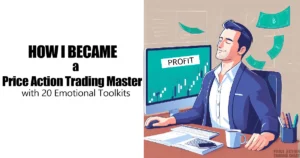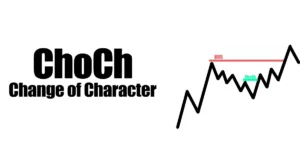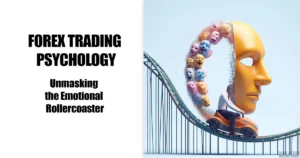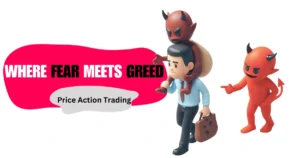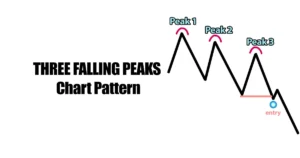TLDR (Too Long Didn’t Read):
Did you know that 95% of forex traders lose money in their first year? As a seasoned forex trader, I’ve seen firsthand the challenges that new traders face. But with the right knowledge and preparation, you can overcome these challenges and thrive in the forex market.
| Key Point | Summary |
|---|---|
| Steep Learning Curve | Forex trading has a long learning curve. Mastery takes substantial time and effort. |
| Key Challenges | Managing emotions, developing trading plans, analyzing charts, controlling risk. |
| How Long it Takes | Expect 6 months to 2 years minimum to become consistently profitable. |
| Ways to Learn | Books, online courses, journals, demo practice, working with mentors. |
| Mindset for Success | Embrace failures as lessons. Persist through setbacks. Stay disciplined. |
What You’ll Learn
You’ve entered the Forex trading arena, where you can make or break your financial future with a single trade. The foreign exchange market is a fascinating place, but it’s not for the faint of heart. As a newbie trader, you’ll face many hurdles and pitfalls in your first year.
That’s why I’ve created this guide to help you navigate the Forex learning curve and overcome the challenges that come your way. By following this guide, you’ll learn how to become a confident and successful Forex trader in no time.
“The journey of a thousand miles begins with a single step.”
– Lao Tzu
The Labyrinth of Forex Trading

Welcome to the Jungle
The Forex Jungle is an apt metaphor. The market operates 24/5, across multiple time zones, making it a global financial behemoth. Its sheer scale can be overwhelming, and understanding the dynamics of various currency pairs, economic indicators, and geopolitical events is akin to navigating a dense forest.
Don’t Get Lost in the Woods
To survive and thrive in the Forex Jungle, you need to have a clear map and a compass. You need to know where you are, where you want to go, and how to get there.
You need to have a solid trading strategy, a risk management plan, and a trading journal. You also need to have the right tools and resources, such as charts, indicators, news feeds, and mentors.
Watch Out for the Predators
The Forex Jungle is full of dangers and opportunities. You will encounter many predators, such as market makers, brokers, scammers, and hackers.
You will also face many challenges, such as volatility, leverage, emotions, and stress. You need to be alert and cautious at all times, and avoid falling into traps and pitfalls. You also need to be flexible and adaptable, and take advantage of the opportunities that arise.
Enjoy the Adventure
The Forex Jungle is not all doom and gloom. It is also a place of adventure and excitement. You will learn new skills, meet new people, and discover new horizons.
You will experience highs and lows, wins and losses, joys and sorrows. You will grow as a trader and as a person. You will have fun and make money.
See Also: What Successful Traders Know And Do That You Don’t
Year One: The Trials and Tribulations
How to Avoid the Rookie Mistakes
“The Rookie Mistakes” are an unavoidable part of the learning process. It’s common for novice traders to fall into traps such as overtrading, not using stop-loss orders, or ignoring fundamental analysis.
These mistakes can cost you money and confidence, and make you doubt your trading abilities. To avoid these pitfalls, you need to have a clear trading plan, a disciplined mindset, and a balanced approach to technical and fundamental analysis.
How to Learn from the Common Mistakes
The Common Mistakes are inevitable when you start trading Forex. You may make errors such as trading too much, risking too much, or neglecting the market news.
These mistakes can hurt your performance and your morale, and make you question your trading skills. To overcome these challenges, you need to follow a sound trading plan, a strict risk management, and a comprehensive market analysis.
How to Grow from the Valuable Experiences
The first year is full of valuable experiences that can help you improve your trading. You will gain knowledge, skills, and confidence as you trade different currency pairs, indicators, and events.
You will also face various emotions, such as anxiety, euphoria, curiosity, and boredom. To benefit from these experiences, you need to have a strong mindset, a realistic goal, and a positive outlook.
You also need to have a feedback system, such as a trading journal, a mentor, or a community.
The Emotional Rollercoaster
How to Face Your Fears and Greed
The first year often feels like a rollercoaster ride, with steep learning curves and occasional setbacks. Fear and greed are two formidable foes every trader must confront.
The fear of losing and the greed for more profits can cloud judgment. To overcome these emotions, you need to have a clear trading plan, a realistic risk-reward ratio, and a consistent exit strategy.
How to Survive the Rollercoaster Ride
“Emotional Intelligence” plays a pivotal role in successful Forex trading. It’s not just about mastering charts; It’s about mastering your emotions too.
You will face many ups and downs, successes and failures, joys and frustrations. You will also encounter many emotions, such as fear, greed, excitement, and boredom.
To survive this ride, you need to have a strong mental game, a realistic expectation, and a positive attitude. You need to be aware of your feelings, thoughts, and behaviors, and how they affect your trading decisions.
You also need to be able to manage your stress, cope with losses, and celebrate wins. This may be healing for you: Forex Trading Psychology: Unmasking the Emotional Rollercoaster
The Forex Education Dilemma

How to Choose Between Forex Courses and Self-Learning
The battle between “Forex Courses and Self-Learning” is real. While formal courses offer structured learning, they may lack real-world insights. Self-learning, on the other hand, allows you to gain hands-on experience but can be fraught with misinformation.
How do you decide which one is better for you? Well, it depends on your learning style, budget, and goals.
How to Find the Right Balance Between Theory and Practice
Finding the right balance between theoretical knowledge and practical application is crucial. You don’t want to be a bookworm who knows all the concepts but can’t execute them in the market.
You also don’t want to be a cowboy who trades without a plan or a clue. You want to be a smart trader who combines both theory and practice to achieve consistent results.
Risk Management Strategies for New Traders
How to Control Your Risk Exposure in Forex Trading
“The Art of Risk Control” is one of the most underrated skills in Forex trading. Many new traders are seduced by the allure of high leverage, leading to disproportionate losses.
Leverage can magnify your profits, but it can also magnify your losses. You need to be careful and responsible when using leverage, and never risk more than you can afford to lose.
How to Protect Your Capital with Stop-Loss Orders and Position Sizing
Effective risk management, including the use of stop-loss orders and proper position sizing, is your armor against financial ruin. Stop-loss orders are orders that automatically close your trades when the price reaches a certain level, preventing further losses.
Position sizing is the process of determining how much money to risk on each trade, based on your risk tolerance and account size. By using these tools, you can limit your losses and preserve your capital.
Forex Gurus Exposed : The Dark Side of Signal Providers

The Perils of Overtrading
“The Overtrading Trap” is a dangerous pitfall for first-year traders. It’s tempting to engage in multiple trades simultaneously, but this often leads to overexposure and increased risk. Discipline and self-control are your lifelines in avoiding this peril.
Unconventional Wisdom: Luck vs. Skill
There’s a persistent debate on the role of luck in Forex trading. While luck can certainly play a part in short-term gains or losses, long-term success is primarily determined by skill. Trading is an art that can be honed through practice, strategy, and continuous learning.
Forex and Mental Health
“Mind Over Margin” is not just a catchy phrase; it’s a stark reality. The high-stress environment of Forex trading can take a toll on your mental health.
It’s imperative to develop coping strategies, take breaks, and maintain a balanced lifestyle. These 20 emotional kits will be good for you too.
The Turnaround Point: Celebrating Success
Now, let’s talk about success. Many traders who survive their first year emerge stronger and more resilient. We’ll share stories of those who turned their initial challenges into opportunities and how they did it.
Get another lens on progress by viewing this video’s advice.
Conclusion: The Forex Odyssey

You made it! You survived the first year of Forex trading, and you should be proud of yourself. It was not easy, but it was worth it. You faced many challenges, but you also learned a lot.
You grew as a trader and as a person. As you continue your trading adventure, don’t forget the three keys to success: knowledge, emotional intelligence, and risk management.
They will help you avoid the traps and find the treasures in this labyrinth. And remember, you are not alone. I’m here to help you along the way.
There are always new paths to ability – see them here
The Forex market is not a get-rich-quick scheme; it’s a field where the diligent, patient, and informed traders succeed. Keep learning, adapting, and evolving, and in the end, your efforts will reward you.
Your first year in Forex may be a trial by fire, but it’s also the crucible in which successful traders are forged. Embrace the challenge, and you might just find yourself at the helm of your own trade success story.

Brian Miller is a Forex trader who uses price action, a method based on real prices instead of indicators. He learned this technique from hedge fund experts and has been trading full-time since 2011. He has a finance degree and writes about Forex on various websites. On this website, he shows his price action system and how it works in different markets.

